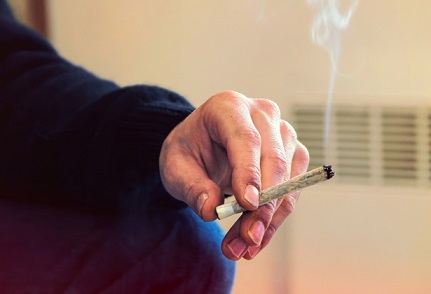Last Updated on October 24, 2023 by Neil Sharma
Get Landlord agreement forms here
Just as his pet-friendly apartments filled a need in the market, one landlord is betting that his marijuana-friendly buildings will, too.
The imminent law legalizing marijuana stipulates that it can only be smoked in private residences, and landlords have already voiced their displeasure. No-smoking clauses are common in leases and they’ll inevitably encompass marijuana smoke too—and that’s where William Blake sees opportunity.
Blake anticipates marijuana smokers will flock to abodes wherein they can light up hassle-free, so he and his group of American investors are looking at buildings in Calgary, where properties can be had at reasonable price points, that they can retrofit with strong ventilation systems and fans, among other things.
Blake, an experienced landlord of over 20 years and a senior member of the Ontario Landlords Association, has fulfilled needs like this before.
“I have some properties that are pet-friendly properties because a lot of landlords don’t want to rent to people with pets,” he said. “The number of people applying for my units tripled because so many landlords don’t want to rent to people who have pets.
“Pet tenants are some of my longest tenants. One lady has been there for eight years because she doesn’t want to move out and put up with some landlords who don’t want her pets there. These niche markets can create long-term tenancies. Landlords don’t like people moving out every year because then we have to advertise again and even risk vacancy, which is a landlord’s nightmare.”
Smoking of all kind is usually prohibited in apartment units because the smell bothers neighbours and devalues the property. Moreover, fumigating a single unit after a smoking tenant moves out can be costly.
“After they move, the cleanup cost can be very expensive and hit us in the pocket book and bank account,” said Blake. “To fumigate and get it cleaned, it can cost up to $5,000. For a corporate landlord with economies of scale, $5,000 is still a lot of money, but if you have an investment property, $5,000 can eat up your entire cash flow and budget for the year.”
The kind of buildings Blake and his investors are looking for likely won’t have more than 20 units, and he believes renters will pay premium rates to live in them. Of course, tenants won’t have to smoke pot to live in the buildings; they’ll just have to be okay with it, he says.
“Personally, I don’t smoke but it’s going to be a legal right, and where landlords see it as a problem, I see it as an opportunity,” he said. “American investors are very interested in this. Vacancy is a landlord’s biggest nightmare because we still have to pay the mortgage, but we strongly believe this will bring in a lot of applicants into the units, and that they’d be willing to pay a premium price.”
Alberta’s reasonable property prices will allow the team to test drive this idea—they intend to have their buildings ready for the summer, in time for legalization—and if all goes well, British Columbia and Ontario will be their next target markets.
Related stories:
Neil Sharma is the Editor-In-Chief of Canadian Real Estate Wealth and Real Estate Professional. As a journalist, he has covered Canada’s housing market for the Toronto Star, Toronto Sun, National Post, and other publications, specializing in everything from market trends to mortgage and investment advice. He can be reached at neil@crewmedia.ca.









